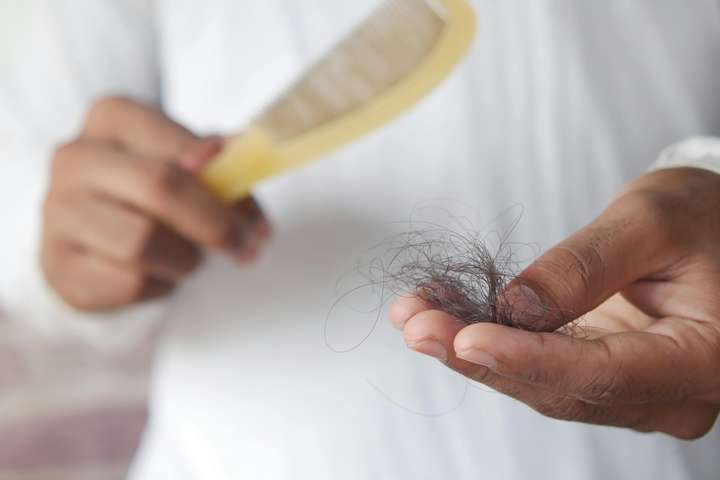Many people suffer from hair loss. It can be gradual or sudden. Hair loss is caused by things you have no control over, such as age, hormones, stress, and genetics. During hormonal changes, women feel it as well. Medical conditions like thyroid problems or stress can also cause thin hair.

Understanding Hair Loss
There are causes of hair loss, or alopecia, including age, hormones, genetics, and stress. Many women experience hair loss during menopause when their hormones change. Hair thinning may also be caused by medical conditions such as thyroid disorders. The changes can come gradually for some or suddenly for others. Remember, hair loss isn’t only about appearance.
Preventing Hair Loss
You can take steps to protect your hair. First, treat your scalp well. Clean, and use no harsh chemicals. Ponytails and braids pull at your roots. Over time, this can result in hair loss. Brush or style your hair gently. Second, include good amounts of protein and vitamins. Certain nutrients aid in hair growth. They include iron, zinc, and vitamin D. Stress can cause more shedding, so avoid it. Reduced hair loss with yoga, exercise, or meditation can help manage stress.
Treatment Options
Many treatment options exist when hair loss starts to become noticeable. The best-known of these is a topical solution called minoxidil. Another medication that lowers the hormone DHT associated with thinning hair is finasteride. Hair transplants are also an option in more severe cases. The hair is moved from a full part of the scalp to a thinning or bald spot. This surgery gives natural results, but it is very expensive, and recovery time is needed. Scalp micropigmentation for women is also an option for those looking for nonsurgical options. Tattooing small dots on the scalp to resemble hair follicles is involved. This will give your hair the appearance of a fuller head of hair.
Exploring Lifestyle Changes
Simple lifestyle changes can help promote hair health beyond medications and treatments. Here are two important factors – staying hydrated and not smoking. Smoking cuts off blood supply to hair follicles and weakens hair growth. It also increases the circulation of blood and healthy hair growth. With essential oils such as peppermint or rosemary oil, this effect can be helped because both are believed to be good for your hair.
When to Contact a Professional
If you suddenly (or significantly) lose hair, see a doctor. This could be something happening behind the scenes, an underlying health issue that would warrant immediate care. Hair loss can be caused by some of the following conditions: hormonal imbalance, autoimmune disorders, and nutrient deficiencies. A dermatologist will check for and treat hair and scalp problems differently. Depending on the situation, they may evaluate your medical history, perform blood tests, or might even go in for a scalp biopsy. With the right diagnosis and direction, you can find out what tailored treatment plan is right for you. It’s not too late to get help; early help helps lead to a better outcome.
The Emotional Side of Hair Loss
Hair loss can affect your emotional well-being deeply and self-esteem. For many people, they feel like they are either losing their identity or confused about who they are. Letting yourself feel these emotions is important because they are real. It doesn’t help to ignore the emotional burden in this or to avoid talking to support groups or talking to friends that you can trust. It’s not that you’re going through this alone because many are going through similar things and feeling the same. Furthermore, seeking professional counseling is a way to find a safe space to say what you are thinking and work through coping strategies. Yet remember, it’s fine to feel angry about hair loss, and letting yourself feel this way is a big part of the healing process and can even help you grow as a person.
Conclusion
Hair loss is a challenge to deal with, but it’s manageable. There are many ways to deal with prostate enlargement, ranging from what is called preventive care to what is considered the application of topical conditions to what can be considered lifestyle changes. Be a proactive player in your hair health, and don’t be afraid to ask for help from experts. Saying yes to you starts with the right choices and the right mindset. By looking at a holistic approach, you will be able to tackle this journey successfully.

